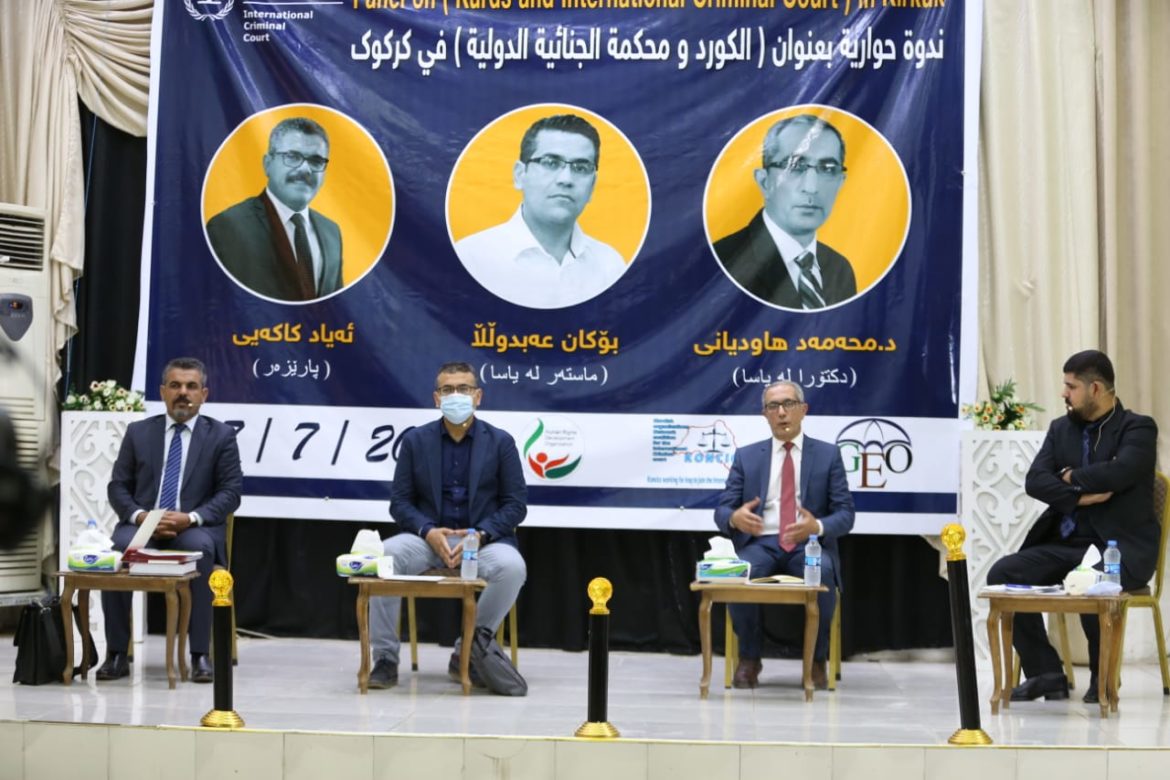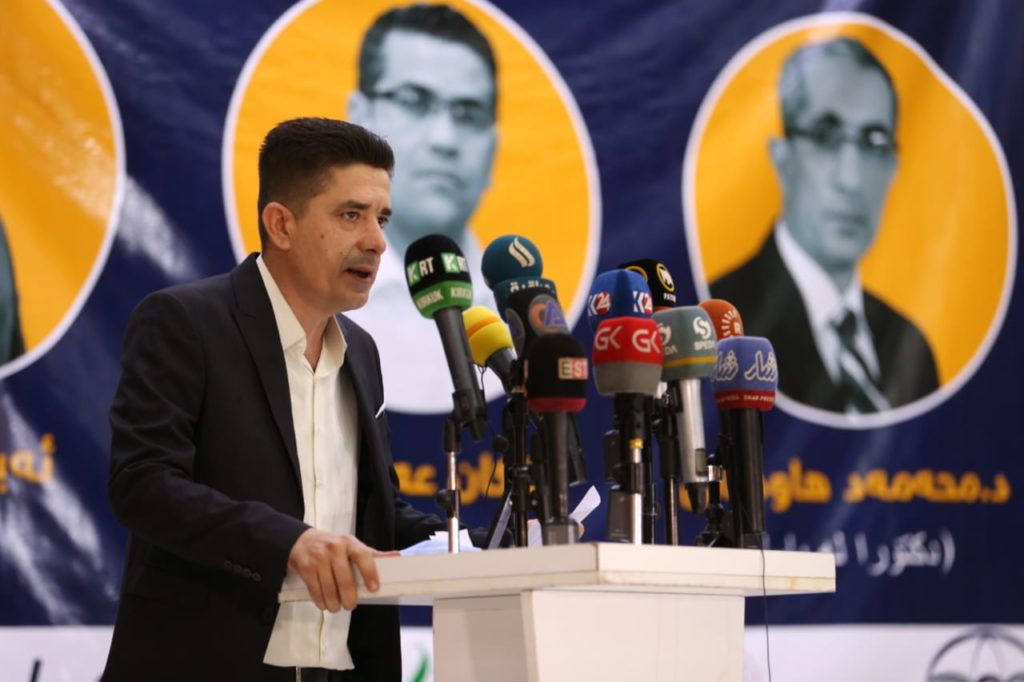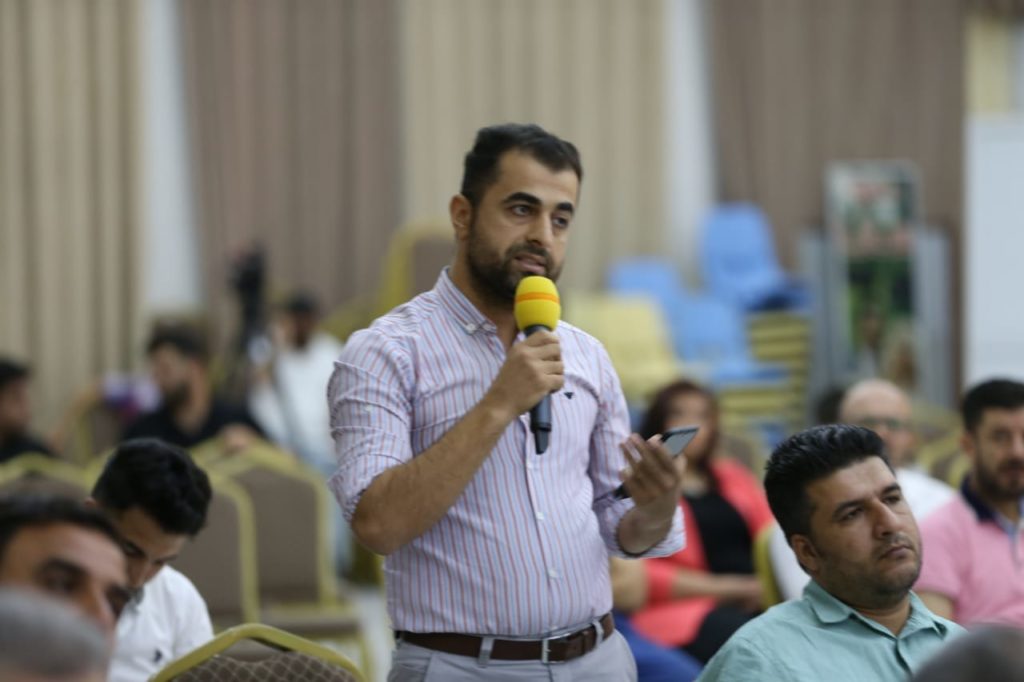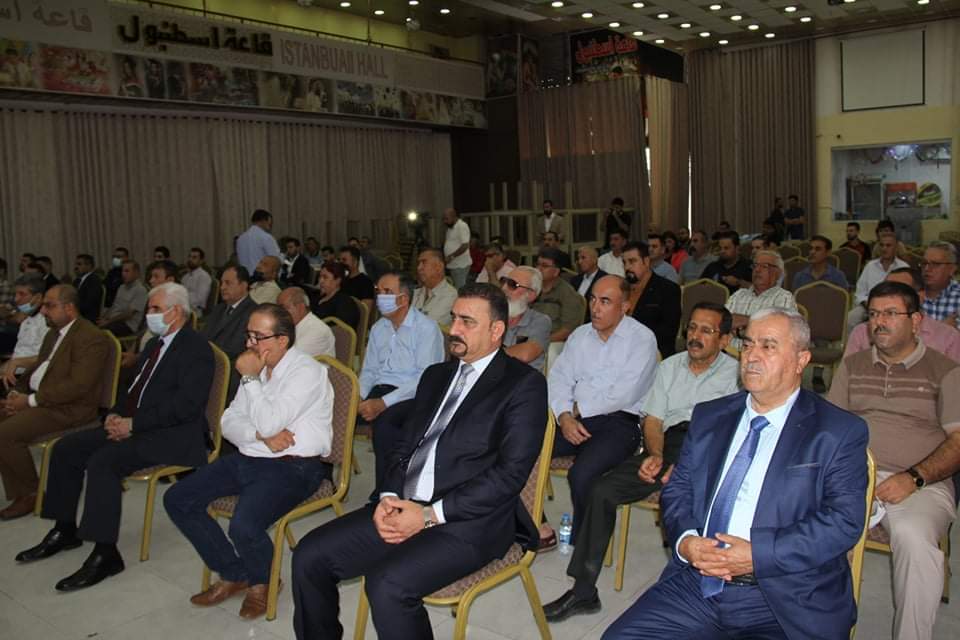Washington Kurdish Institute
Hemin Hassib August 5, 2021
On Saturday, July 17th, the Human Rights Development Organization, the Green Environment Organization, and the Kurdish Organizations Network Coalition for the international Criminal Court ( Koncicc Network) hosted a panel discussion on the anniversary of establishing the International Criminal Court (ICC) and the Rome Statute. The event took place in Kirkuk city with the participation of three speakers.
Dr. Ayad Kakaie spoke about the Chemical Weapons Convention bans and the efforts to stop producing chemical weapons. Dr. Kakaie also addressed the role of ICC in prosecuting individuals and companies responsible for selling chemical weapons to regimes and governments; like western companies that sold chemical components to the former Iraqi regime led by the dictator Saddam Hussein, resulting in the death of 5,000 Kurdish civilians in Halabja in 1988.
Dr. Mohammed Hawdani presented his remarks titled “Minorities and the ICC,” addressing the stateless minorities in the world who are also victims of genocide. Dr. Hawdani noted that Iraq is a non-state party in the Roma Statute of the ICC as the government has not signed the treaty. As a result, the ICC can not launch investigations or open cases in those countries. Therefore, minorities such as the Kurds need to rally support to urge the Iraqi government to sign the Rome Statute.
Bokan Abdullah, a lawyer from Kirkuk, covered the ISIS massacres and use of chemical weapons against the ministries in Iraq. Abdullah spoke about the Yazidi Genocide committed by ISIS in 2014 and the use of chemical agents by ISIS in the south of Kirkuk and Nineveh against Kurds and Christians.
As the largest ethnic group without a state, the Kurds have suffered genocide in Iraq, Iran, Syria and Turkey. To achieve justice for the victims and their families and to avoid more massacres, there are steps Kurdish leaders, political parties, and Kurds as a whole, need to take. The Kurds can take advantage of ICC by doing the following:
- First, the Kurdistan Regional Government of Iraq (KRG) must demand Iraq to join the ICC and sign the Rome Statute. This must be a priority during negotiations between Erbil and Baghdad. Iraq’s membership in the ICC will decrease the likelihood that Kurds and other minorities will not face genocide in the future.
- Second, on the international level, the Kurds can lobby the United Nations Security Council (UNSC) to call on the ICC to prosecute the criminals responsible for the genocides. For example, Libya is not part of the ICC and the Rome Statute, but after a request by the UNSC, the ICC launched a war crimes investigation against the Qaddafi regime for crimes against civilians. Despite Iraq’s rejection to join the Rome Statute, this could be another route for the Kurds to take.
- Third, the Kurds can pursue criminals who have become naturalized citizens in their new countries. Criminals who are citizens of member states of the ICC can be prosecuted by its laws. For example, there is an opportunity for the Kurds to file a case in the ICC against the former Iraqi Prime Minister, Haider al Abadi, for the crimes committed against Kurds during the aftermath of the independence referendum on October 16, 2017. These crimes, which included killings, burning homes, and the displacement of Kurds across the disputed territories, were committed after Abadi ordered the deployment of Iranian-backed militias and Iraqi forces to take over Kirkuk and the Kurdistan region. Abadi is a dual citizen of Iraq and the United Kingdom, and the latter is a State-member of the Therefore, Kurds can seek a case against Abadi. Additionally, some ISIS terrorists are European citizens who could return to their home countries after committing atrocities against civilians both in Iraq and Syria. It is essential for both KRG and the Autonomous Administration of North and East of Syria (AANES) to provide the ICC with information about ISIS terrorists and their country origins.
The Rome Statute is like a constitution for the ICC that has clear guidelines that do not allow for opening an investigation into non-State members. The Kurdish governments and parties must carry out the aforementioned recommendation. Kurdish expatriates can also play a part by educating and lobbying human rights organizations and NGOs in the US and Europe to attract more attention to crimes committed against Kurds and bring justice to victims of gencide and their families.
Disclaimer: The views, opinions, and positions expressed by authors and contributors do not necessary reflect those of the WKI.




